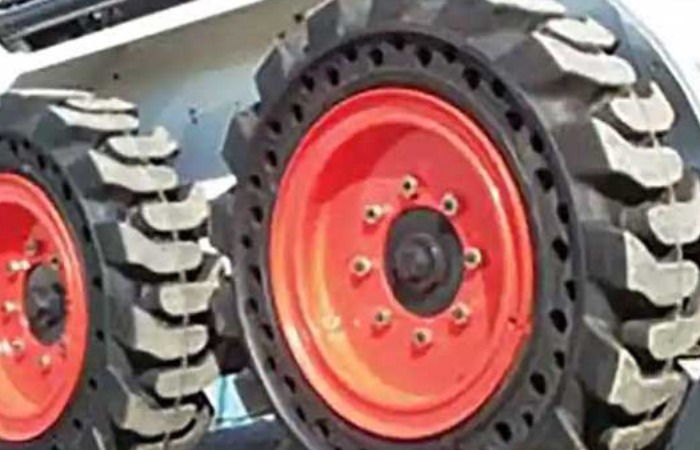
Trident launches innovative skid steer tyre
Trident, a specialist tyre supplier, is delighted to announce the introduction of its groundbreaking skid steer tyre, featuring a patented non-directional traction tread pattern. This innovation not only promises exceptional performance but also offers additional advantages such as reduced wear and decreased inventory costs.
Traditional directional tyres often exhibit uneven wear resulting in heightened maintenance and replacement expenses. In contrast, our new skid steer tyre with the patented non-directional tread pattern is designed for reduced wear and an extended lifespan. This leads to significant cost savings for businesses making it a prudent choice both financially and environmentally.
Another notable feature of this innovative tyre is its potential for lower inventory costs as it eliminates the need for left and right mounting. Businesses can thus streamline their tyre inventory.
Our state-of-the-art tread pattern provides unparalleled grip and traction in soft underfoot conditions such as mud sand and snow. The natural rubber tread compounds are resistant to cuts and chunking reducing downtime and increasing productivity. Whether you're in construction agriculture or landscaping these skid steer tyres are designed to meet the needs of professionals across various industries.
Trident has always been dedicated to innovation and this latest product exemplifies our commitment to delivering top-notch solutions to our customers. Our product development team has worked tirelessly to create a tyre that not only enhances performance but also offers cost-saving benefits.
We are excited to introduce this unique tyre to the market. The patented non-directional R4 tread pattern (US Patent - D813793) provides high uniform traction in both forward and reverse directions. Other features include a robust casing with high ply ratings and mud breakers.
The new skid steer tyre is available in sizes 10-16.5 and 12-16.5 and it is also offered as ready-to-mount tyre and wheel assemblies.


 +91-22-24193000
+91-22-24193000 Subscriber@ASAPPinfoGlobal.com
Subscriber@ASAPPinfoGlobal.com